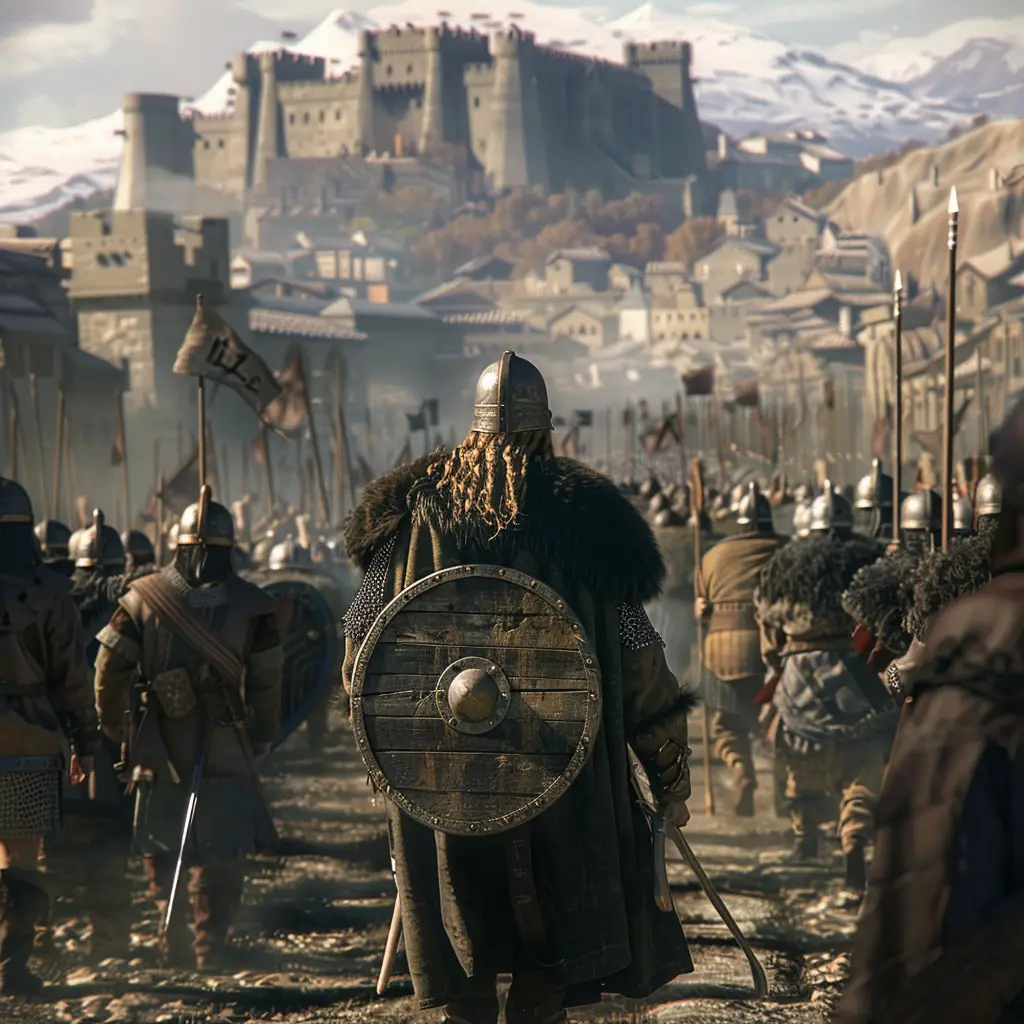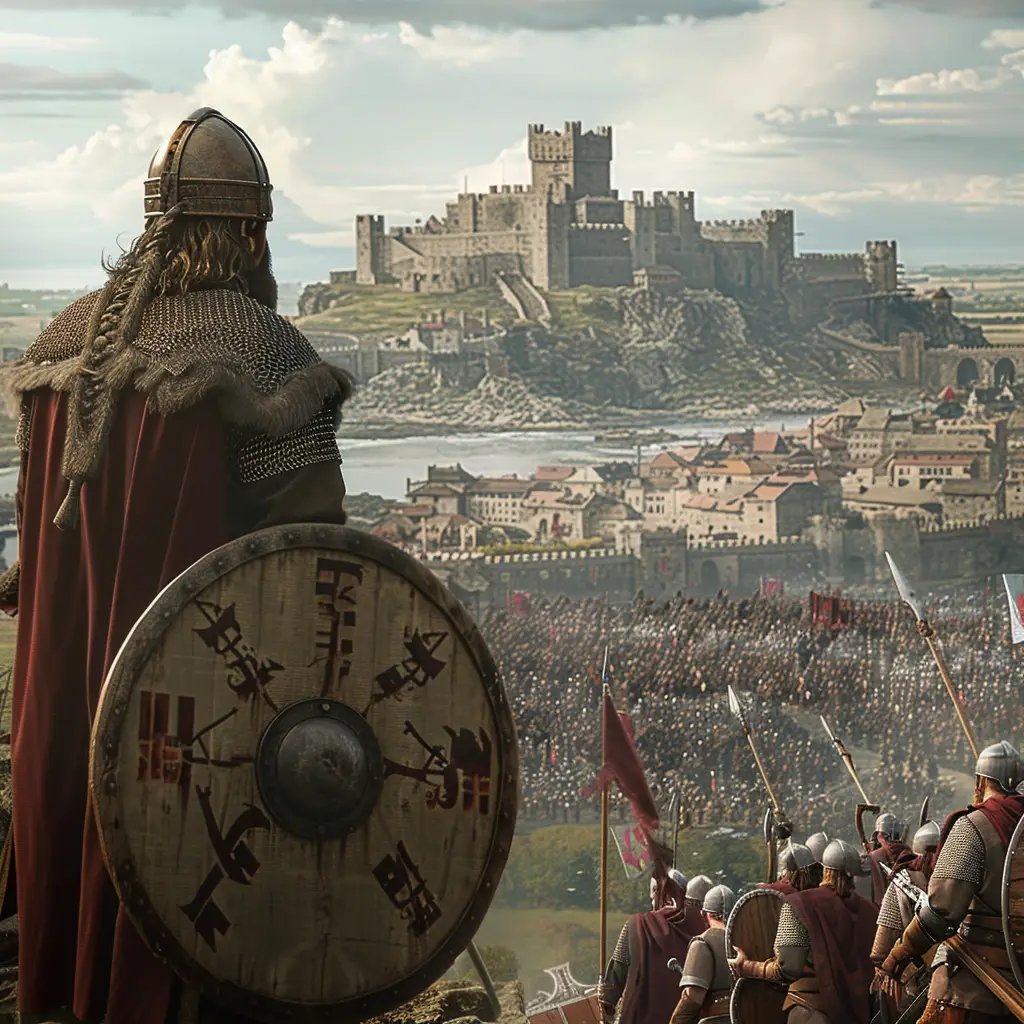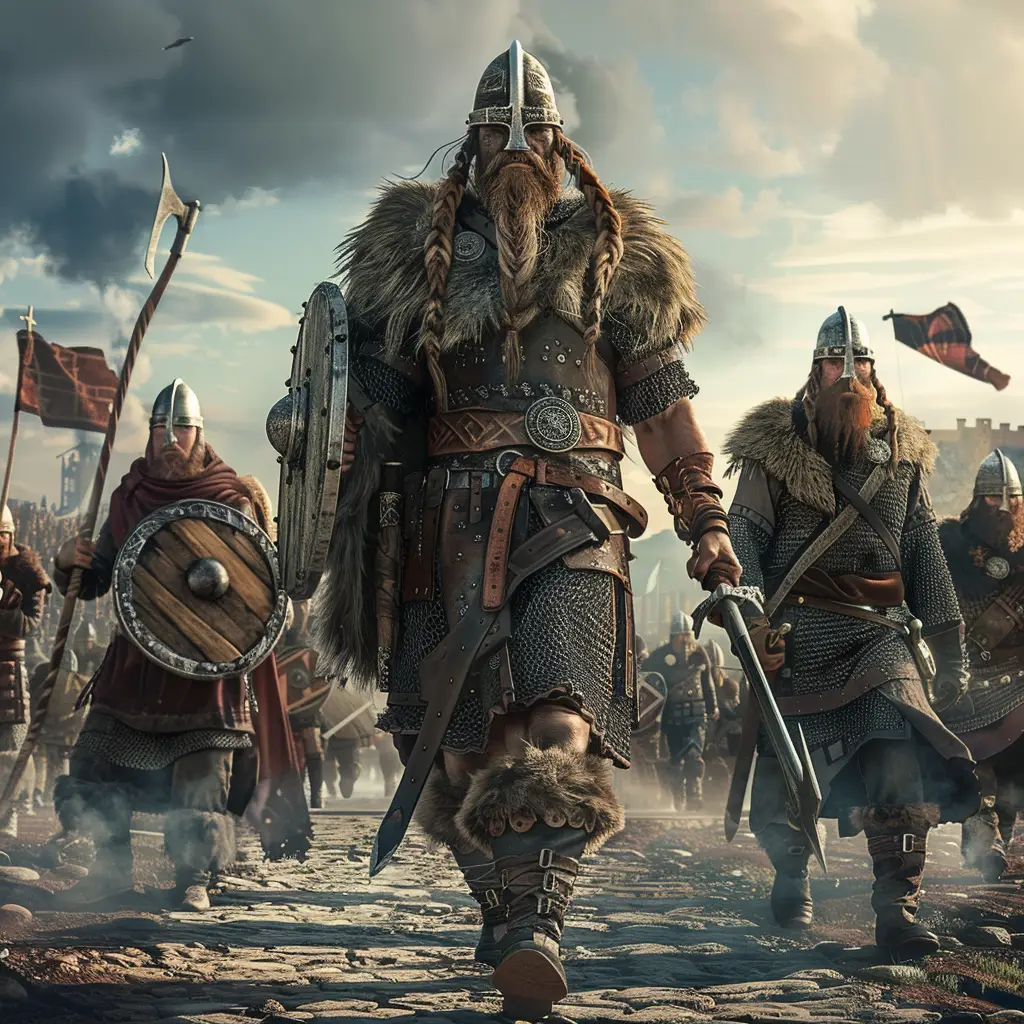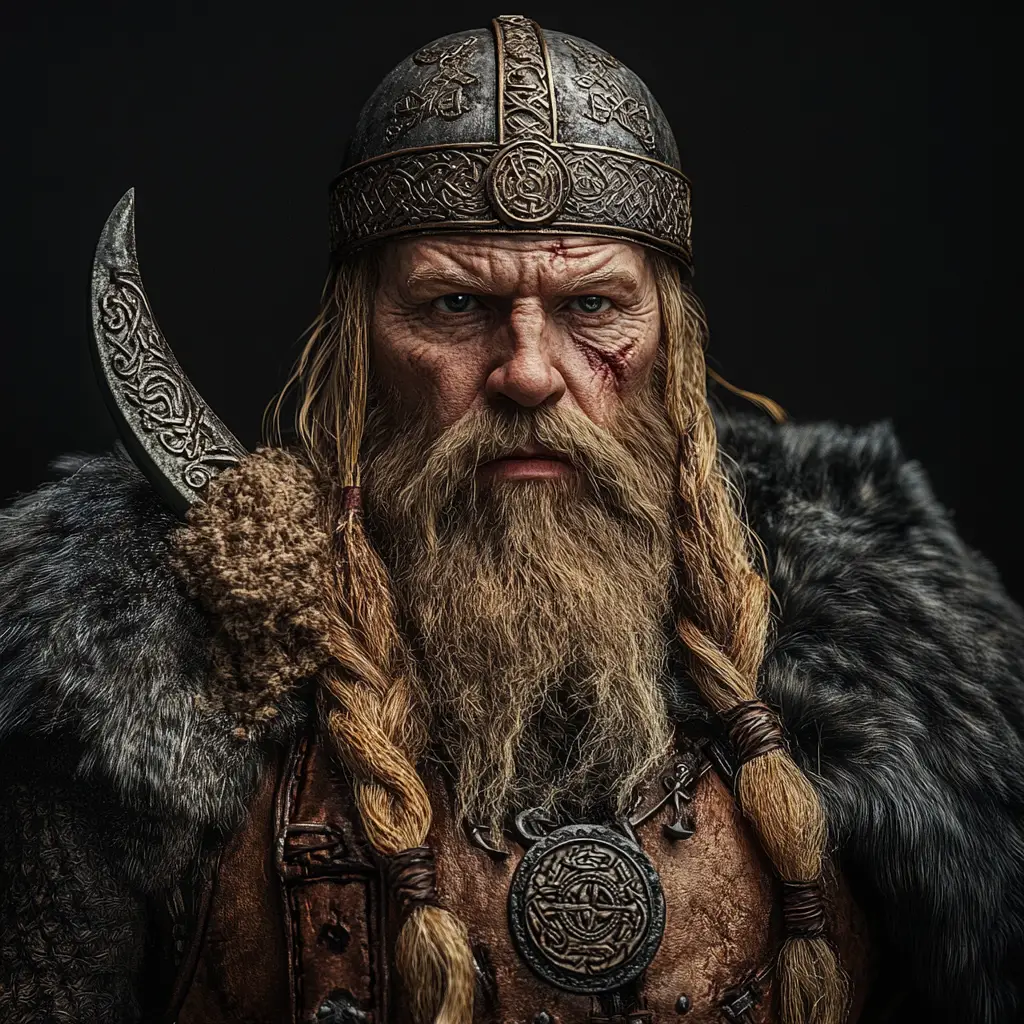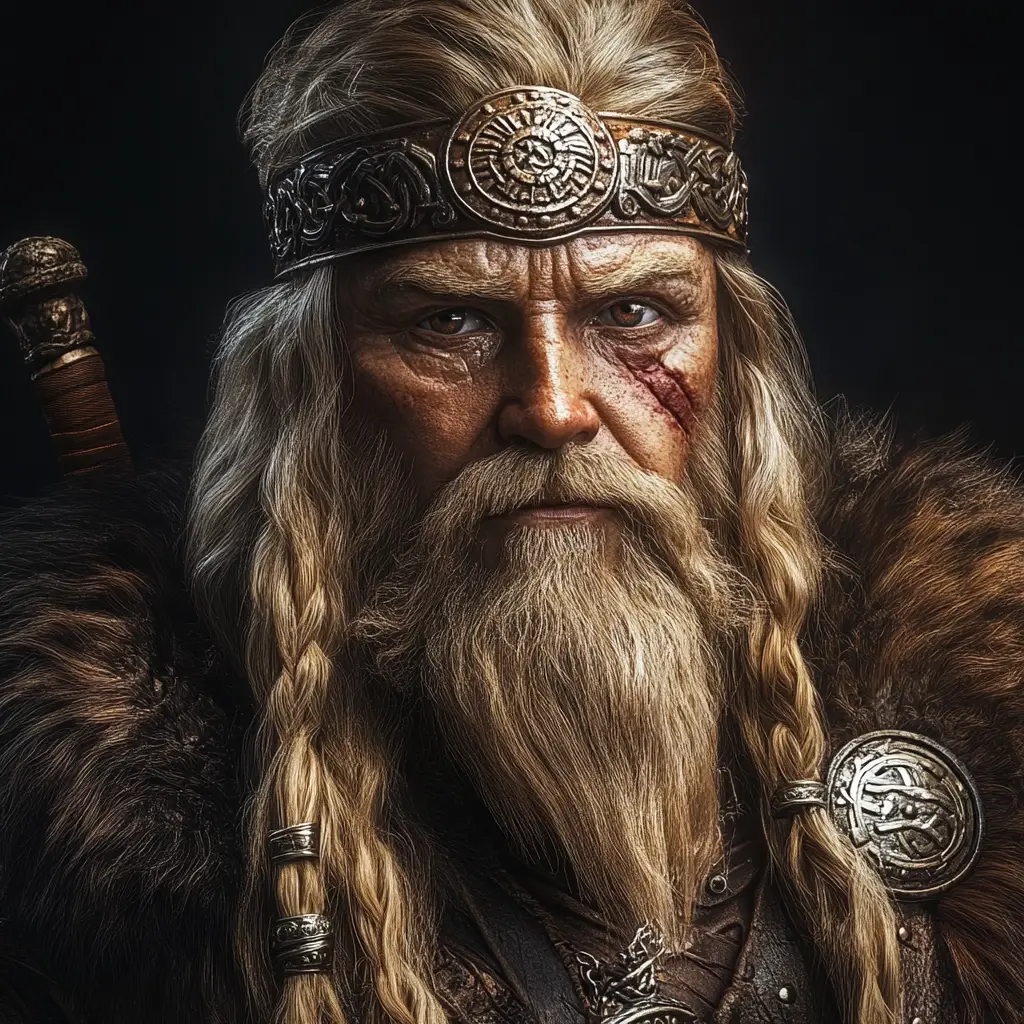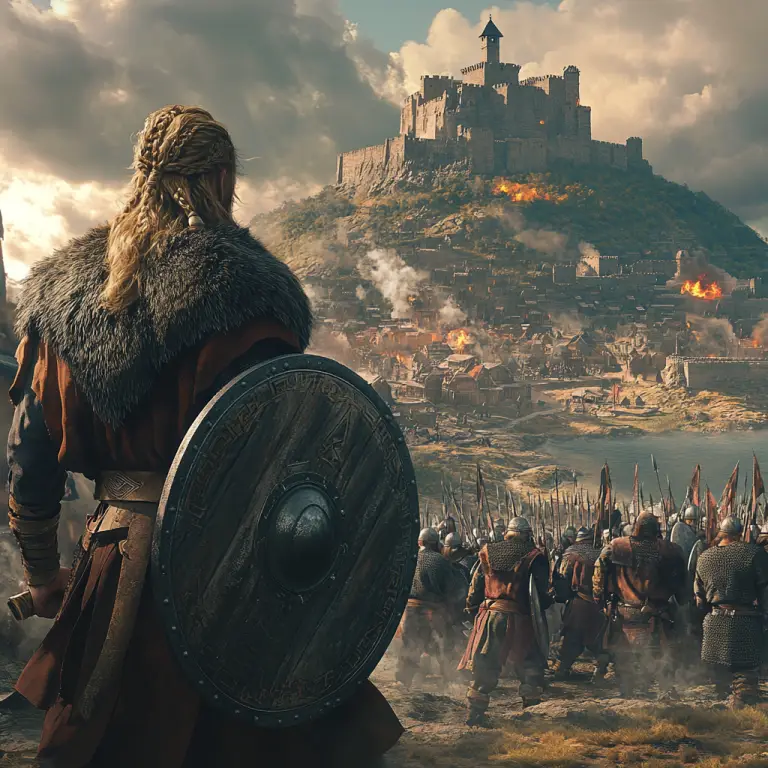Rollo, also known as Gange-Rolv (meaning “Rolf the Walker” in Old Norse), was a Viking chieftain who became the first Duke of Normandy in the early 10th century. He is renowned for his role in the Viking expansion into France and the subsequent founding of what would become the Duchy of Normandy. Rollo’s legacy includes being an ancestor of the Norman kings of England, including William the Conqueror.
Nickname: Gange-Rolv
Rollo was called Gange-Rolv (or Göngu-Hrólfr) because, according to legend, he was so large and heavy that no horse could carry him, and he had to walk wherever he went. “Ganger” means “walker” or “goer,” and “Rolv” (or Hrolf) is a form of the name Rolf.
2Viking Background
Rollo was likely born in what is now Norway around the mid-9th century. He became a prominent Viking leader, participating in raids and conquests throughout Europe. After being exiled from Norway for reasons that remain uncertain, he led expeditions into the British Isles and along the coasts of France.
His raids in France were particularly devastating, leading him to eventually settle in the region that would become Normandy.
Settlement in Normandy
In 911, Rollo negotiated with the Frankish king Charles the Simple through the Treaty of Saint-Clair-sur-Epte. As part of this agreement, Rollo was granted land in northern France, in exchange for his loyalty to the king and his promise to defend the region against other Viking raiders.
This land, which would become known as Normandy (derived from “Northmen” or “Norsemen”), became Rollo’s domain, and he established a dynasty that would rule there for generations.
Conversion to Christianity
As part of his agreement with Charles the Simple, Rollo converted to Christianity and was baptized, taking the name Robert. His conversion was strategic, helping him solidify his position in Frankish society and gain the support of the Christian church.
However, his adherence to Christianity may have been more political than sincere, as Viking customs and pagan practices continued in his court for some time.
Legacy and the Duchy of Normandy
Rollo’s descendants became the rulers of Normandy, with his great-great-great grandson William the Conqueror famously leading the Norman conquest of England in 1066. This event would forever change the course of European history, blending Viking, Frankish, and Anglo-Saxon cultures.
The Duchy of Normandy became a powerful and influential region, with a strong Viking heritage that influenced the culture, military, and legal systems of the region.
Historical Impact
Rollo is remembered not only for his conquests, but also for his ability to adapt and thrive within a foreign political system. By accepting land, converting to Christianity, and establishing strong governance, he laid the groundwork for the integration of Viking settlers into European society.
His rule marked the beginning of the transformation of Vikings from raiders to rulers, and the Duchy of Normandy became one of the most powerful territories in medieval Europe.
Rollo, the Viking leader and first Duke of Normandy, had several children, although the historical record is somewhat inconsistent regarding their exact number and identity. The two most notable of his children were William Longsword and Gerloc (Adele), both of whom played significant roles in the continuation of his legacy.
Key Children of Rollo
William Longsword (Guillaume Longue-Épée)
Born: Around 893
Role: William succeeded Rollo as the second Duke of Normandy after Rollo’s death. He expanded and consolidated the duchy, continuing his father’s policies of defending Normandy from external threats while integrating Viking settlers into the Frankish culture.
Reign: He ruled from around 927 until his death in 942. His leadership helped strengthen Normandy, and he is credited with further securing the region’s autonomy within the Kingdom of France.
Death: William was assassinated in 942 by the Count of Flanders, Arnulf I, in a political rivalry, which left his young son Richard I (later known as Richard the Fearless) as the heir to the Duchy of Normandy.
Gerloc (Adele)
Born: Around 910
Marriage: Gerloc married William III, Duke of Aquitaine, and Count of Poitiers, which helped form a strong political alliance between Normandy and Aquitaine. After her marriage, she adopted the Frankish name Adele.
Role: Gerloc’s marriage tied Normandy to another powerful region of France, strengthening the Norman connection to the French aristocracy and further integrating the Norse settlers into European society.
Children: Through her marriage to William III, she had children who contributed to the continuation of both Norman and Aquitanian influence in France.
Possible or Less-Certain Children
Some historical sources also mention other children, but their identities and roles are less clear.
Crispin (speculative)
In some sources, Rollo is mentioned as having a son named Crispin, but historical evidence about him is sparse, and his role in history, if he existed, is not well-documented.
Legacy of Rollo’s Children
William Longsword’s son, Richard I (“Richard the Fearless”), became one of the most important dukes of Normandy, ruling for over 50 years and cementing Normandy’s power. Richard’s descendants would continue to lead Normandy, eventually culminating in William the Conqueror, Rollo’s great-great-grandson, who famously conquered England in 1066.
Gerloc’s marriage into the powerful Aquitanian family helped expand the influence of the Normans through political alliances, tying them into the fabric of European aristocracy.
